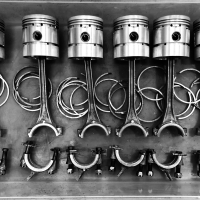Wheel Bearing Seal
I’m re-packing the front wheel bearings on the 54 Hornet & need to find a good part number for front inner wheel bearing “seal”. The one I had wasn’t correct & the one on the car didn’t cross to anything at Napa. I checked Ken’s site & am still striking out. Thanks!
0
Comments
-
Well I’m going to also need new bearings & races too!
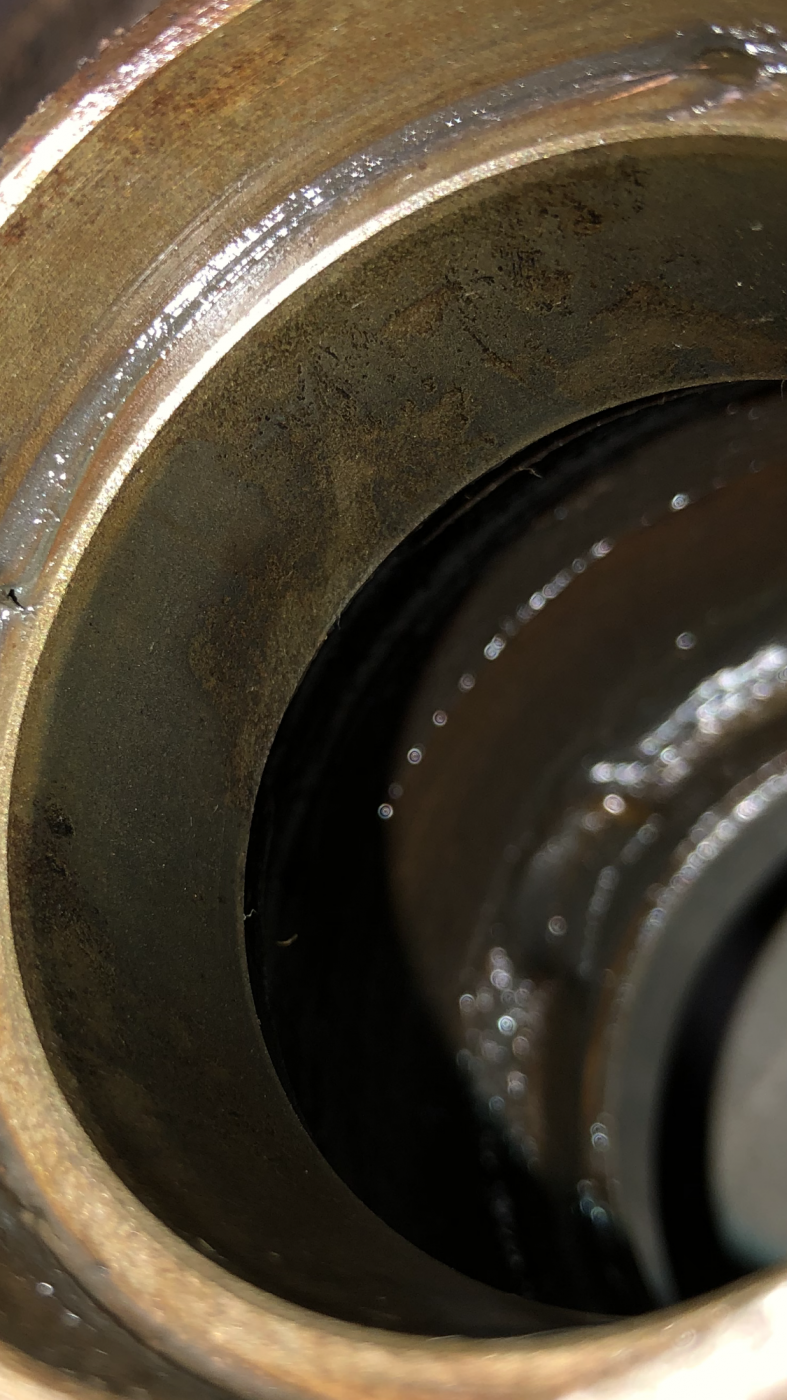
0 -
I have the following on my 1951 Super 6 and acquired them from NAPA. These parts should work on your 1954 Hornet seeing as the front brake drums are the same.Front inner wheel grease seal: SKF 15649Front inner wheel bearing: Timken 15123Front inner wheel race: Timken 15245Front outer wheel bearing: Timken 9067Front outer wheel race: Timken 9195
0 -
Big Sky if you get the parts cchannel to work
on your 54 let us know... I will post this to my website as universal for the Stepdowns0 -
Thanks for the numbers cchancel, the bearings numbers you posted match what I pulled out, & the races numbers are what I’m finding that should work as well. If I don’t post otherwise, assume they are the correct numbers.The wheel seal I pulled out is a CR15960, which is very close to the one cchancel gave us. Both have an OD of 2.502” but the 15960 has a width of 0.313” & a 1.594” shaft size; the SKF15649 has a width of 0.25” & a 1.563” shaft size. I suppose either could be used but since I have 2 of the SKF 15649 seals on the shelf I think I will use those as they may help give a better seal against the spindle. I measured both of my spindles where the seal rides at 1.565”.Below is a picture of my scorched bearings & both sides looked this way. I’m guessing it’s from not having adequate grease in the bearings based upon how little grease there was at disassembly. Based on the condition of the races & bearings I have to wonder if the previous owner put new bearings in & left the pitted & rusted races in place. Either way, it will be done right this time with all new bearings, races & seals.
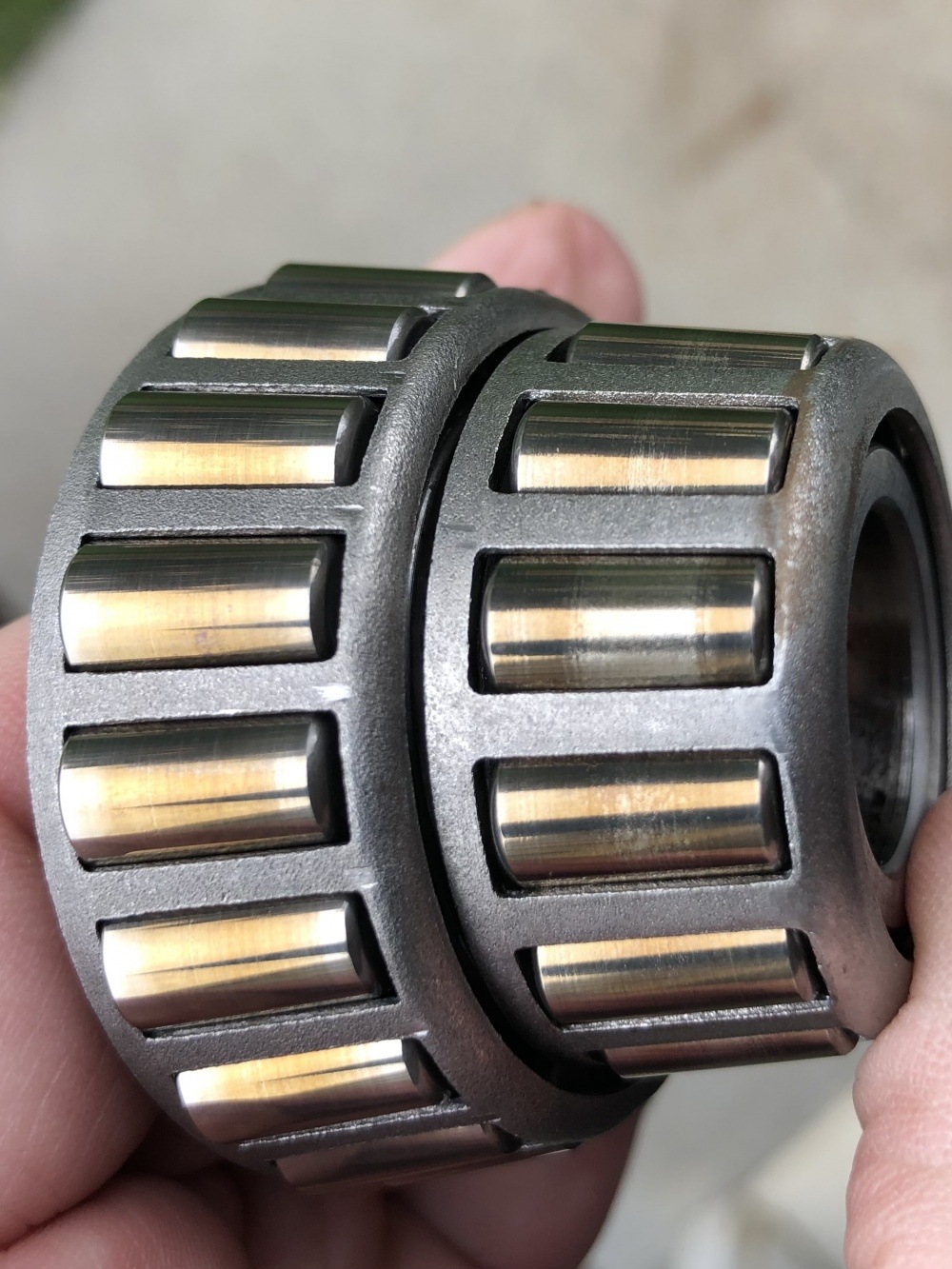 Here’s a close up pic of one race & you can really see how pitted the surface is:
Here’s a close up pic of one race & you can really see how pitted the surface is: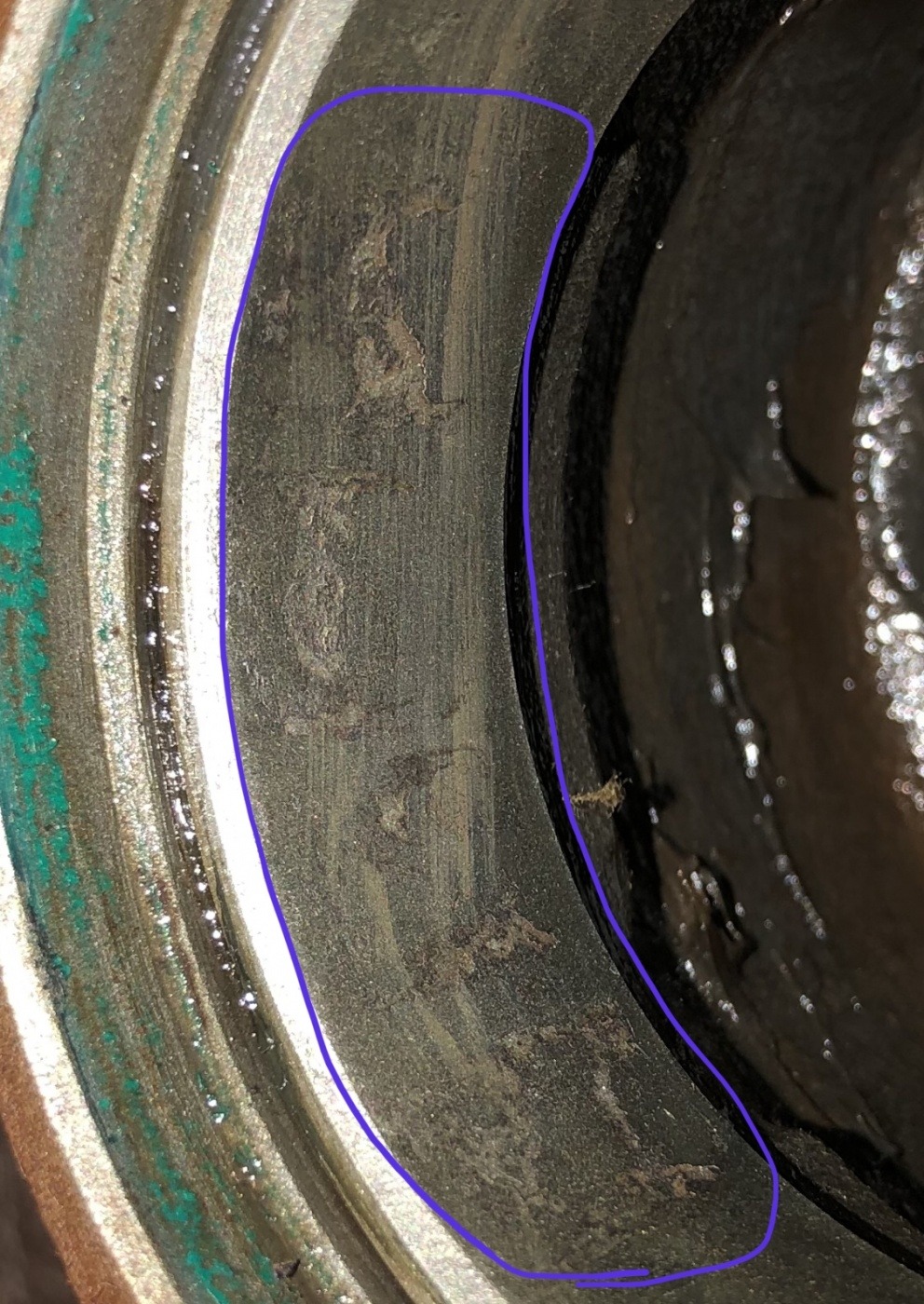
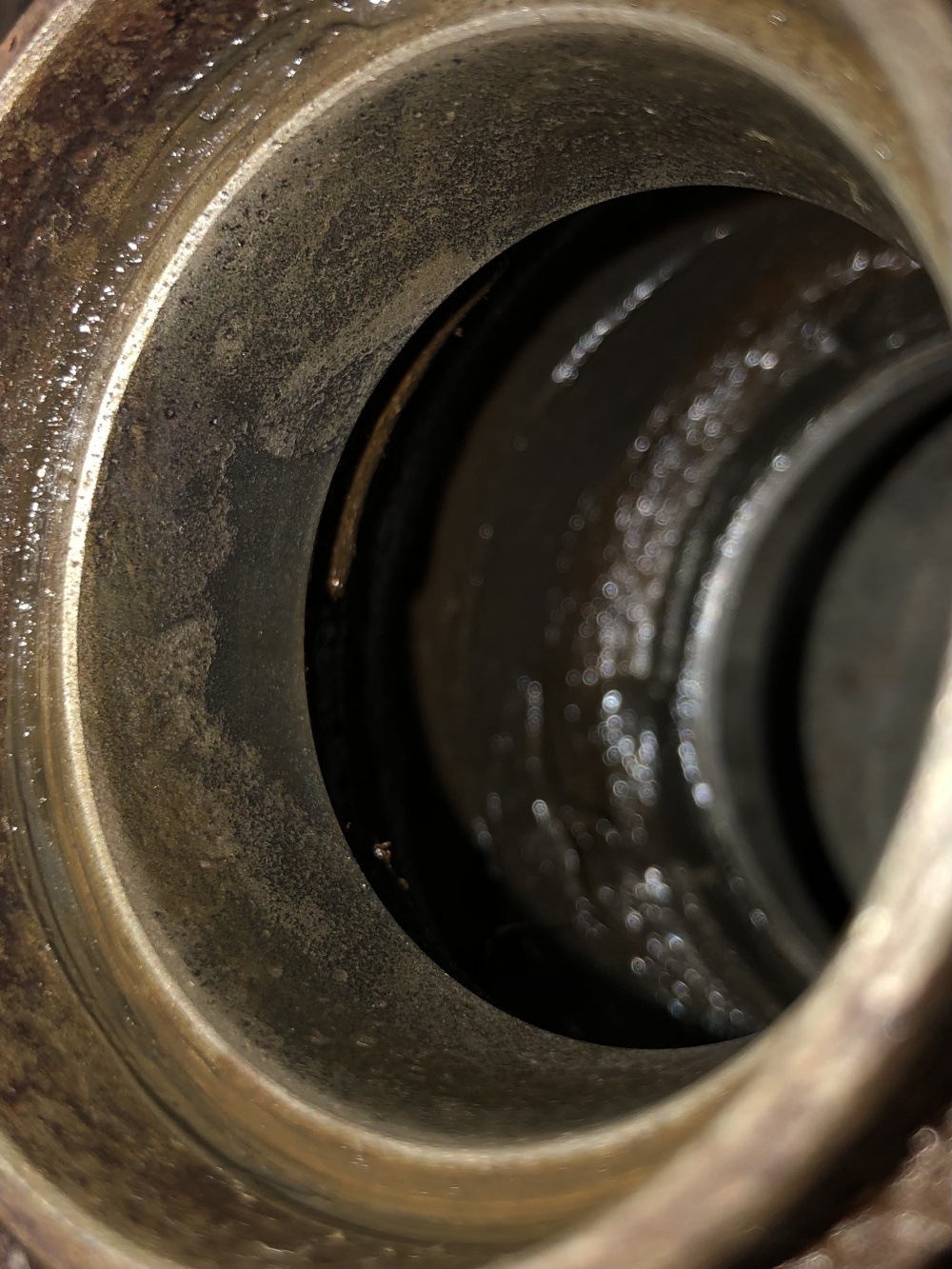 0
0 -
There are a few different thicknesses of front hub seal available in the step-down ID/OD sizes. The only one that is going to work properly is the 1/4" thick seal.0
-
TO add to Bob's note above. Not that my 35 has the same geometry as your 54 but I found the same thing with modern seals. Found two with the correct ID/OD but one was 0.25 thk and the other was 0.313 thk. Took some of my grandkids playdoh and pressed it into the annular space behind the seal about 180 DEG around. With the old seal removed I put the brake drum back on and snugged the castle nut. Upon removing the drum I measured the thickness of the playdoh to check the clearance between the drum hub and the backing plate behind the seal. The attached sketch shows the dimension stackup. The original seals where 0.250. From what I could see if the 0.313 were used the inner lip may not run on the shoulder OR rub against the inner bearing race.
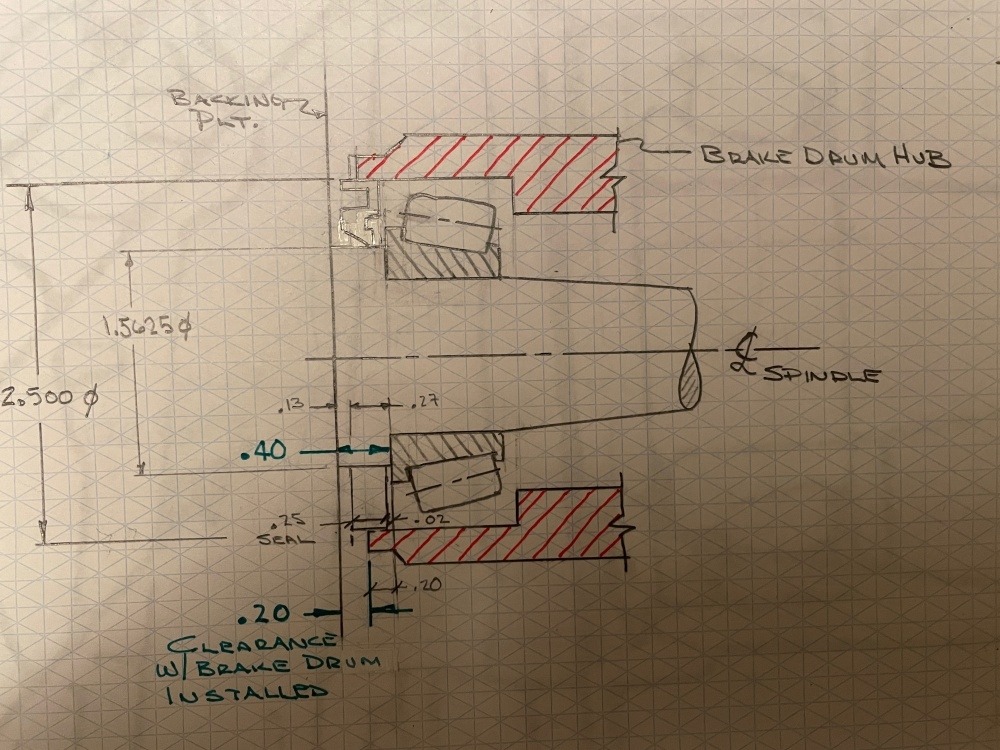 0
0 -
Just did the front wheel seals on my 37T. Dont knock them in flush. Look at the wear marks on old ones.
0 -
Yes, I should have added that. I test fit the seal on the spindle to figure where it should be to run on the shoulder and not rub the inner race. I turned up a tool and shim just so the seal was 0.056 (the thickness of the shim) proud of the drum hub. Worked well.
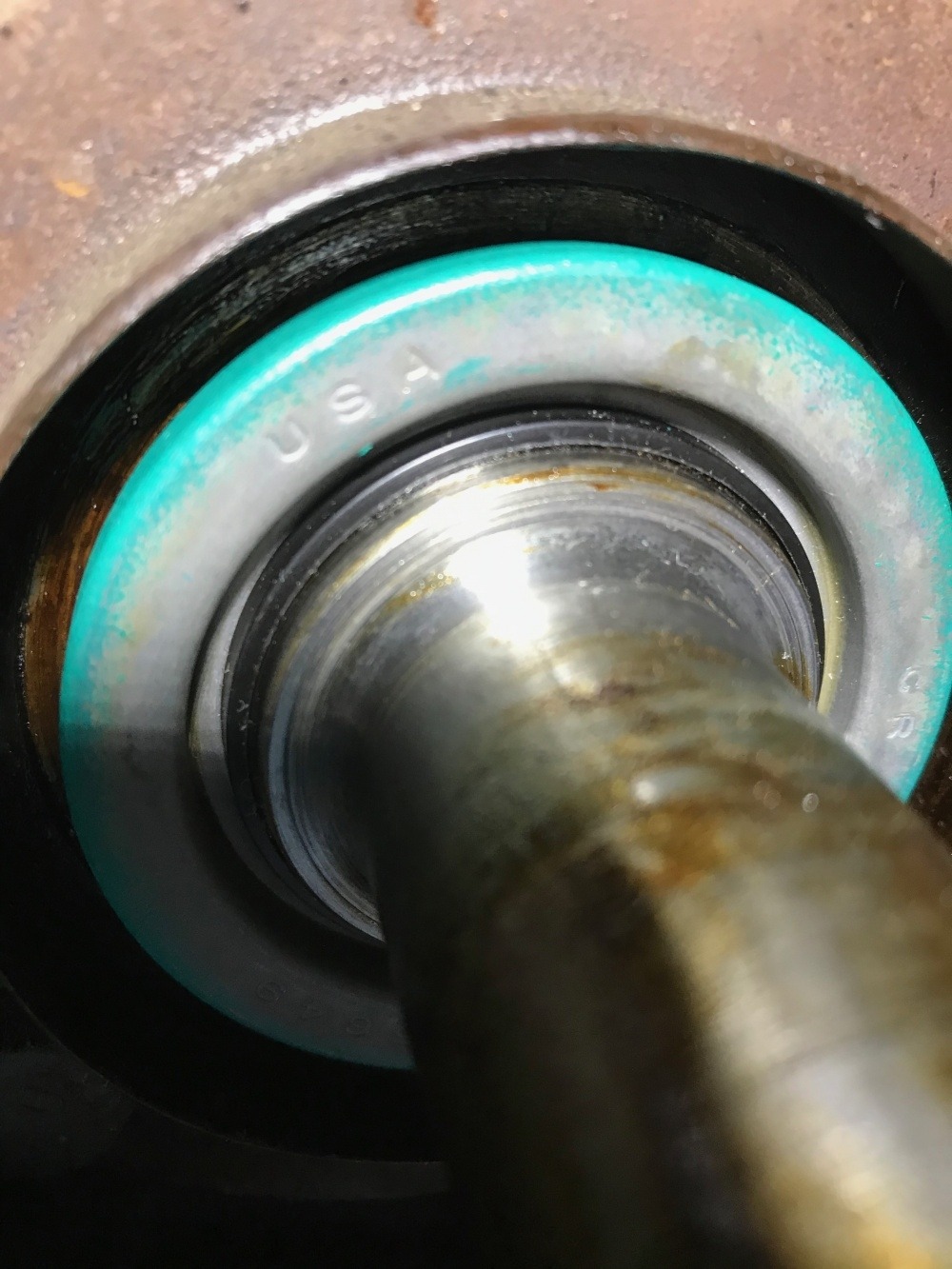
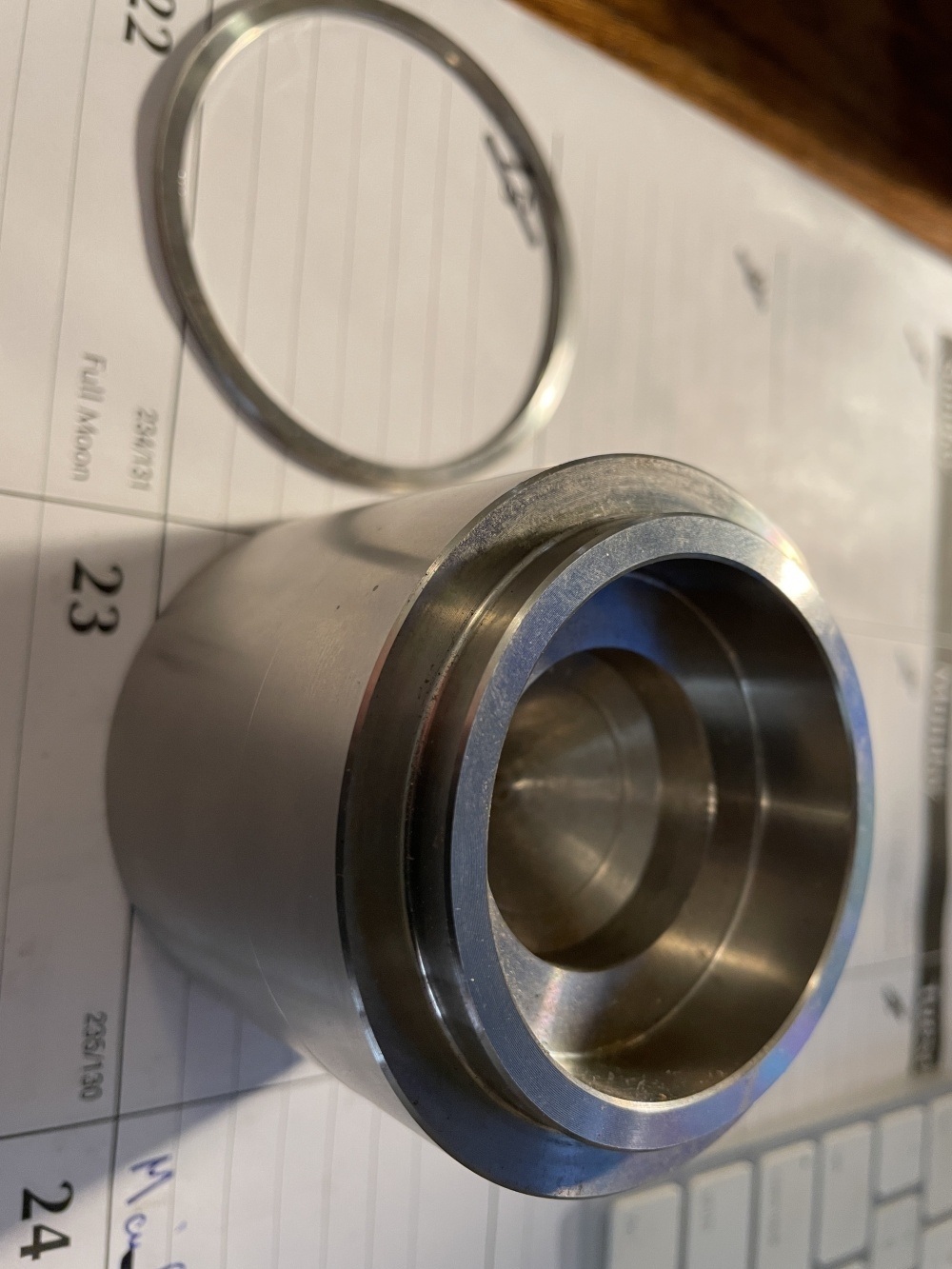
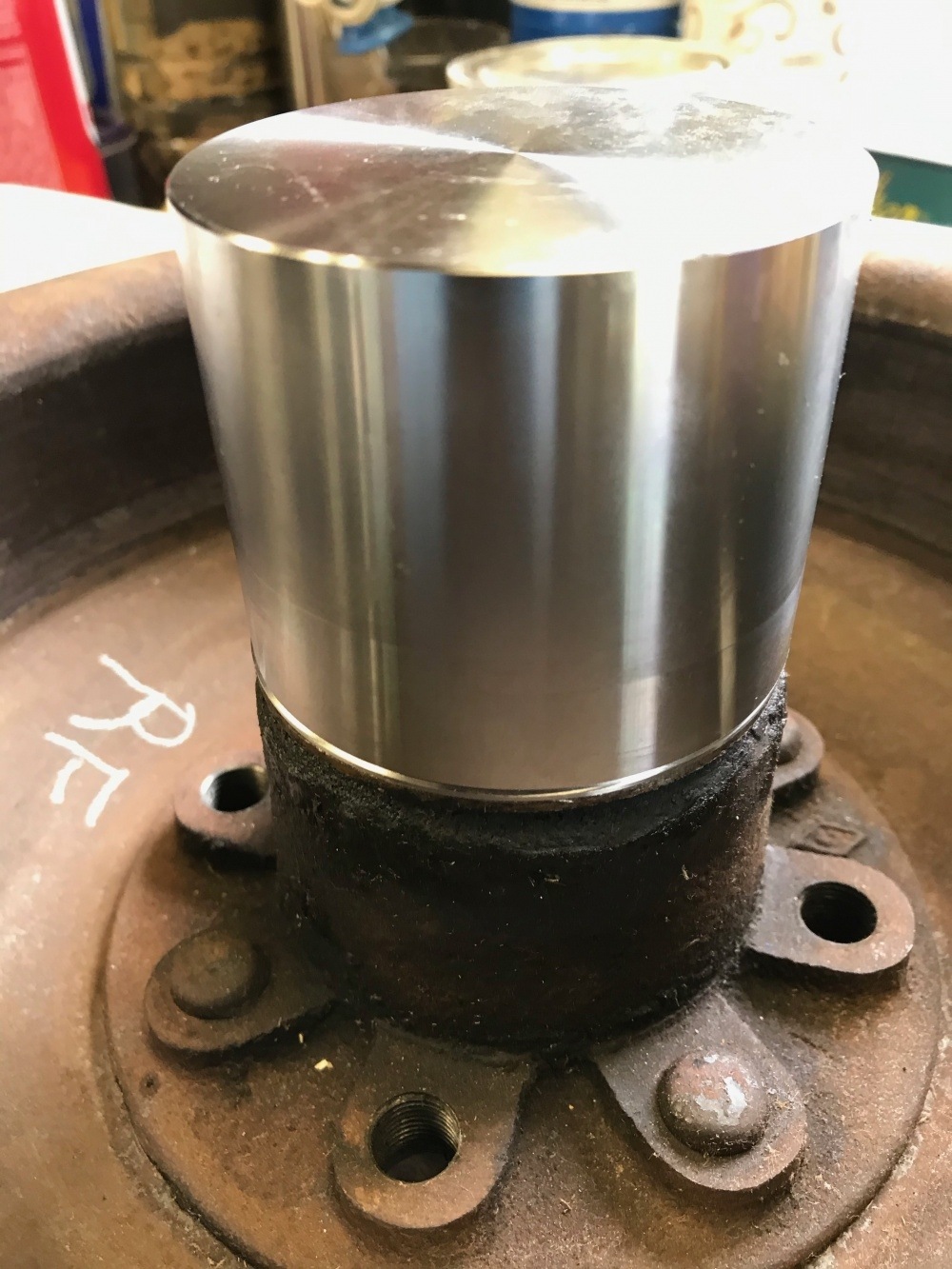
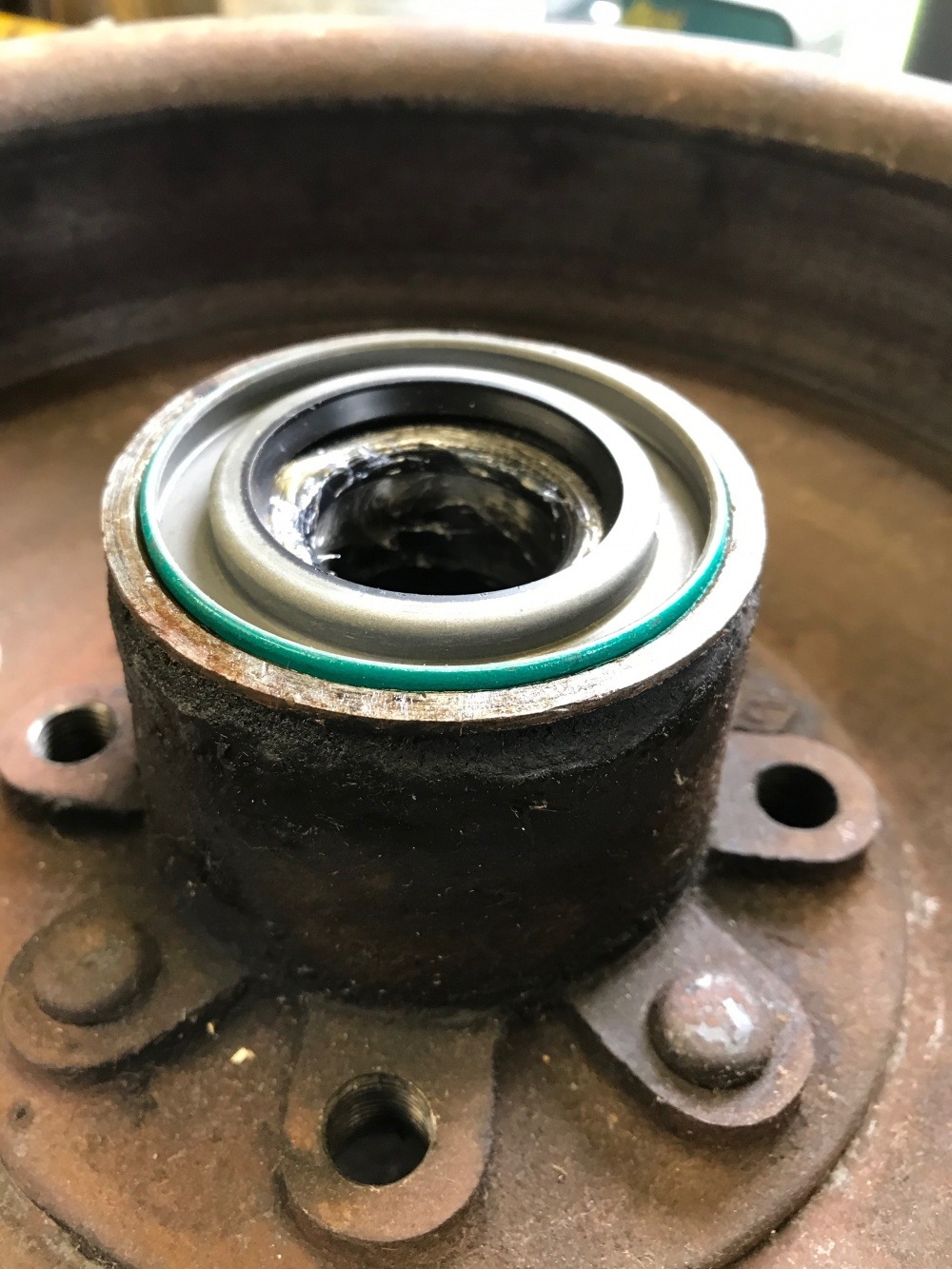
0 -
On my 54 Hornet, it was running the CR15960 seals which have the thickness of 0.313”. On the passenger side the seal had a cut in it which allowed grease to leak out over time. Ironically it gave me a “play-doh” type of thickness gauge of grease ‘n grime on the backside of the seal against the backing plate. While I didn’t measure the thickness of the grime, it does show (in the picture below) that the thicker seal (0.313”) doesn’t hit anything when installed.The outside metal edge of the seal seats in the hub which limits how far it can be pushed in towards the bearing. So as long as the rubber lip is pointed towards the bearings it will keep the grease from leaking out. It looks like the seal was riding on the shoulder, the edge marked in red in the picture below. Again this is on my 54 Hornet.
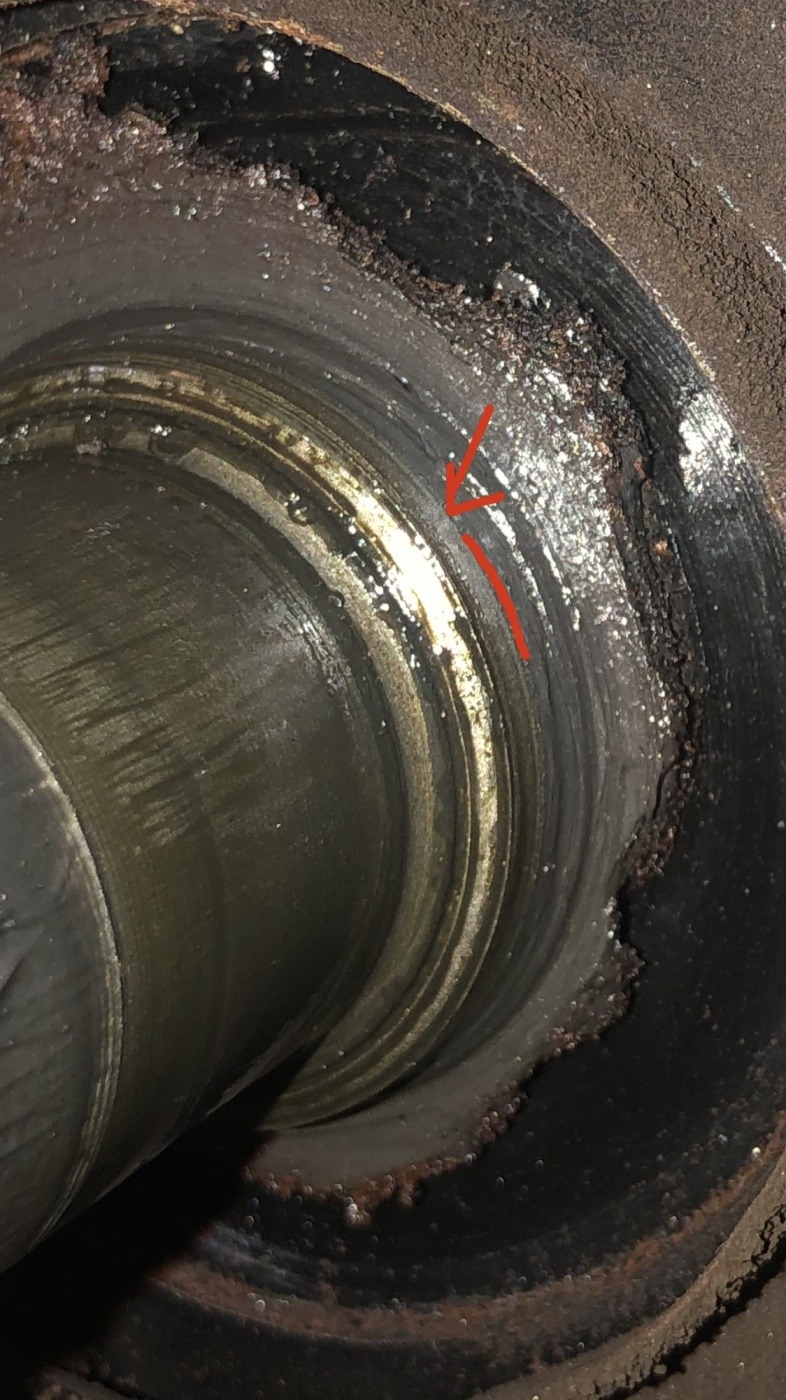 0
0 -
I took another look at the two seals to measure how far back the rubber lip that rides on the spindle shoulder is from the metal edge that seats in the hub.
What I found was the old seal from my 54 Hornet CR-15960 has a recessed rubber lip of approximately 0.133” and the SKF 15649 has a recessed rubber lip of 0.086”. Looks like the old seal (15960) may seat farther back on the spindle shoulder than the (15649).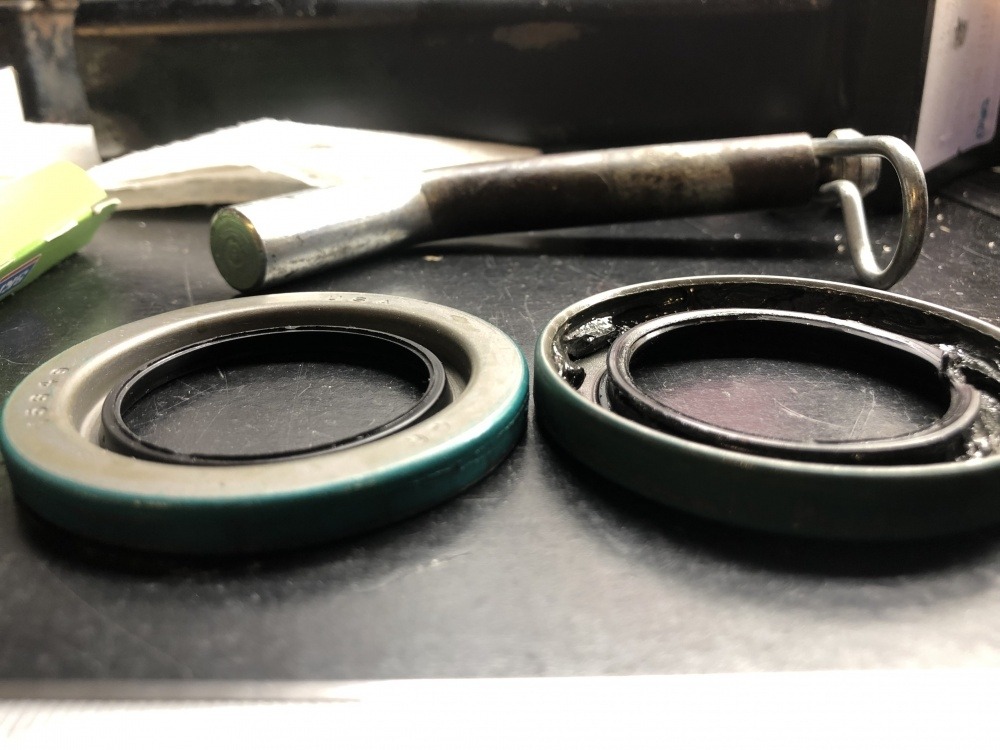
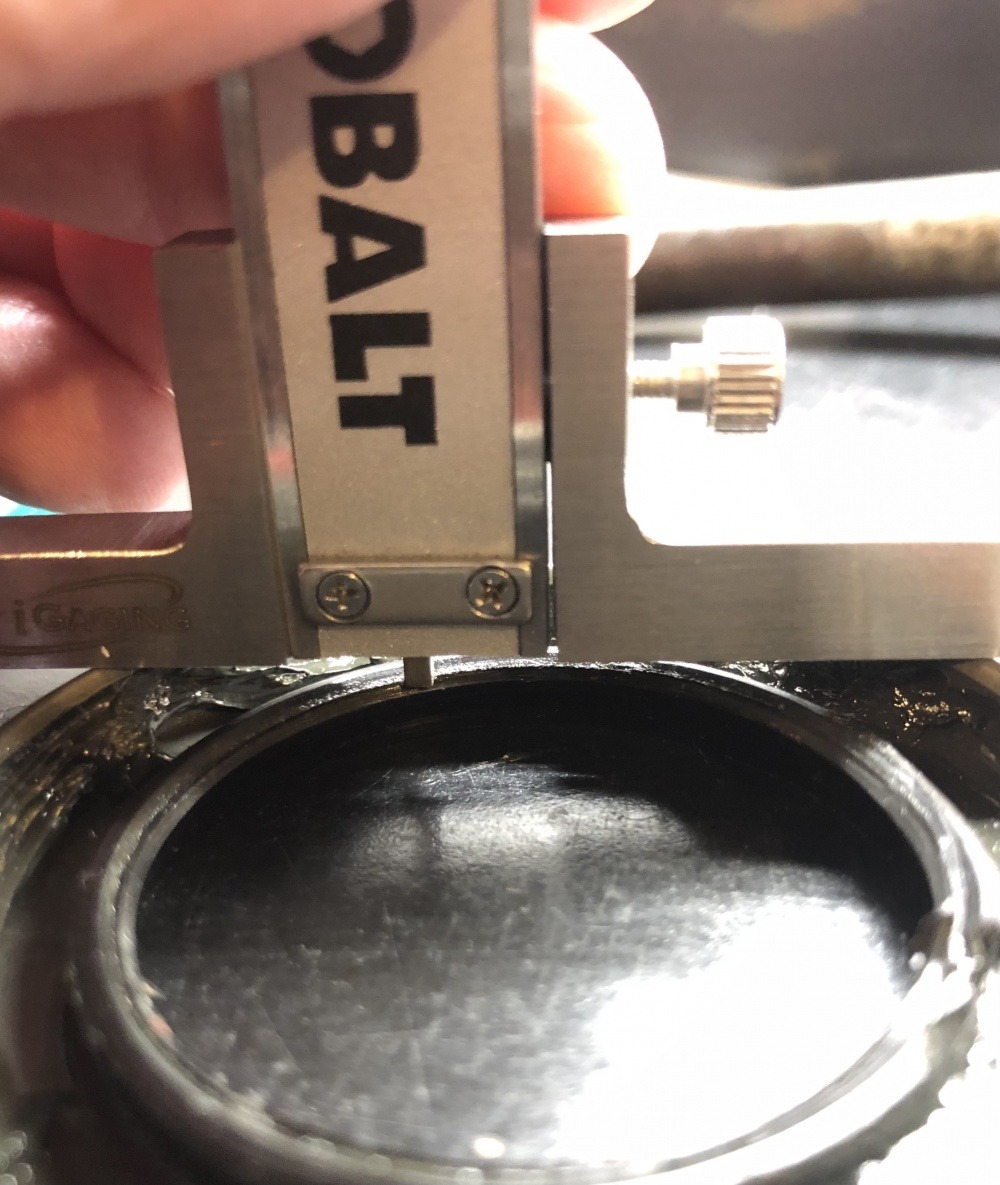 0
0
Categories
- 37K All Categories
- 116 Hudson 1916 - 1929
- 21 Upcoming Events
- 96 Essex Super 6
- 28.6K HUDSON
- 576 "How To" - Skills, mechanical and other wise
- 995 Street Rods
- 151 American Motors
- 181 The Flathead Forum
- 49 Manuals, etc,.
- 78 Hudson 8
- 44 FORUM - Instructions and Tips on using the forum
- 2.8K CLASSIFIEDS
- 609 Vehicles
- 2.2K Parts & Pieces
- 78 Literature & Memorabilia
- Hudson 1916 - 1929 Yahoo Groups Archived Photos
